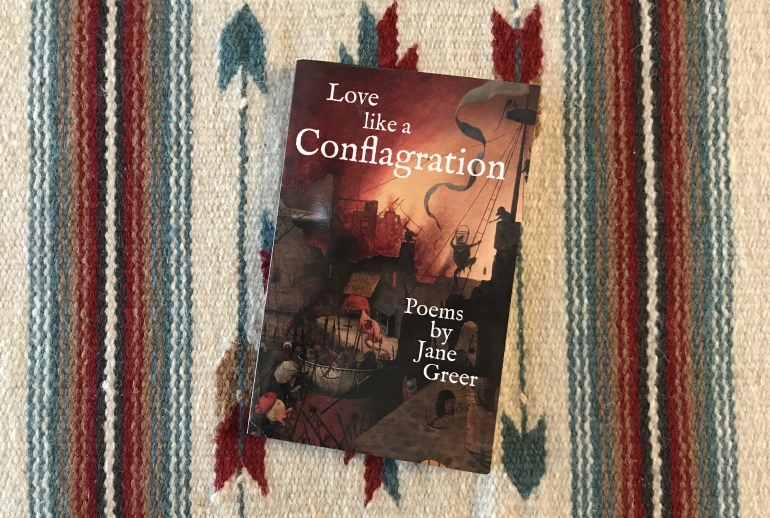How do we tell the story of history? What and who do we include and what and who do we leave out? Both need to be done—both the including and the leaving out—if the story is to be manageable, capture imaginations, and compel attention. Try to include everything and eyes will glaze over; leave out the wrong thing and face objections. Our choices are never simple or neutral, always fraught with difficulty, and listeners can disagree, be offended, or simply insist, “It wasn’t like that at all!”
It isn’t news to report that Americans face this problem when trying to tell the story of America. We struggle over what to include and what to leave out, and the perverse and unhelpful polarizing politicization of the Left/Right culture wars keeps us from listening to one another and parsing our differences like reasonable, thinking adults.
It is also not news to report that when I was growing up in white suburban America there wasn’t any debate on the topic. In my neighborhood, we all heard essentially the same story in school and church, and at political gatherings, and from our parents. It was a positive tale, of a specially blessed nation of hard work, high moral standards, personal and religious freedom, equality in the marketplace, democracy, and the promise of financial prosperity—the American Dream—for all who were willing to apply themselves.
I was told that story when I was a kid, and I believed it. It was attractive and made me proud to be an American. Occasionally, we would hear, ominously, of some who questioned that narrative, but we were told they were ungrateful. My father dismissed Martin Luther King, Jr. as dangerous, “probably a Communist.” Alternative stories were to be resisted.
Still, though at the time as a kid I couldn’t comprehend what was really at stake, the existence and work of Dr. King seemed to suggest that things were not as simple as my storytellers assumed. There must be more than one way to tell the story, or perhaps there were multiple stories. But at the time this was just a vague feeling, and as a child I tended to believe my parents. Which turned out to be a mistake. And as I will show, since they claimed to believe the Bible, they should have known better.
In “The American story, splintered, and those vying to tell it,” (Associated Press; June 3, 2020), Ted Anthony cleverly summarizes the extremes.
And sadly, American society is so deeply angry and fragmented that the extremes sometimes seem mainstream.
What does the United States of America mean?
Perhaps it’s Storyline No. 1: Americans are part of an epic tale of equality, of optimism and trajectory, a steady path toward prosperity that includes everyone from the melting pot working together to form a more perfect union. Its best days are still ahead.
Maybe it’s Storyline No. 2: The United States was brutal, unfair from the get-go, colonized by quarreling white European factions that shared little but a tendency to overrun indigenous cultures and hold human beings as property. Its best days, if there really were any, are receding.
Many, if not most try to find something in between. But the debate continues.
My goal here is not to attempt to compose the correct story of America. That is way, way beyond my pay grade and the job for a historian not a theologian. As a theologian, however, I want to suggest that the followers of Jesus should be able to have a positive impact on the storytelling. The reason is that the Scriptures record a story of ancient province in which we live and move and have our being. The biblical story is a narrative in four grand chapters, Creation, Fall, Redemption, and New Creation. It is told from Genesis to Revelation and is centered in Christ, from first to last. And if we stand back and look at it as a whole, there are a number of vital lessons for storytelling we can learn from the way it is told.
The biblical story is true to and brutally honest about both the good and the bad in history.
The story of Scripture is one of great righteousness and horrible wickedness woven into one narrative. Sometimes even woven into the story of a single person within the narrative.
The problem with the extremes that Ted Anthony summarized in the article noted above is that they concentrate on only the good, or on only the bad, and so are not just untrue but implausible. This is a broken world and so our story of American can tell of progress and virtue, of cruelty and violence, without making us uncomfortable. The story of America is of a broken nation and a broken people who at times have done great evil and at other times done great good. The story of America we tell and believe must include both the good and the bad, the righteous and the wicked. Followers of Jesus should never be uncomfortable with the truth.
The biblical story draws us in, so that its story is our story.
The Scriptures do not recite a narrative that is about others out there in a world so different from our own that we cannot relate to it. Though it was written in a different time and culture and language, it is deeply human, so deeply human that in their story I sense my own personal story. It is not a sci-fi story of aliens quite unlike us.
The story we tell of America must be deeply human, so that it resonates with every American who hears it. It should be a story of failure and second chances as well as great progress and the dire unintended consequences of progress that dim hope instead of fostering it. Stories that are untrue to the human experience do not enchant but disappoint. They do not draw us in, and the story they tell never becomes our own.
The biblical story calls us to repentance.
The Scriptures tell of sin—personal, structural, and national—not simply because it is part of the truth, but because human beings must face their past to find redemption. And we can flourish as individuals, as institutions, and as nations only to the extent we are brutally honest about ourselves and seek restitution and forgiveness where it is needed. To refuse this by ignoring the past or refusing to admit our corporate evil is to remain on a road that leads to greater evil and finally judgement.
“Your tribe will always create a narrative that helps you completely avoid accountability,” writes Justin Giboney on Instagram (6/23/2023). “Reject it. Sometimes it is your fault. Sometimes your culture is wrong. Sometimes your opponents get it right.”
I realize this may be an aberration, merely a factor of who my neighbors are, but I have found many Christians I know are so fearful of being “woke” that they reject almost any telling of the American story that includes the horrors of African slavery and the genocide against Native Americans. Or other horrors in the American past. On the one hand, I understand their impulse: they are proud to be American and don’t want to sully their nation’s reputation. I too am proud to be an American, but that includes wanting America to be an even better and more virtuous nation. If we don’t face our past honestly so that we can acknowledge our evil and turn from it, that will not and cannot transpire.
No one is left out of the story of Scripture.
The Old Testament narrative was not merely the story of Israel’s leaders (though it often was centered on them), or Israel’s priests (though they often appeared as characters), or Israel’s prophets (though they often told the story). It was the story of Israel, and every Israelite from every tribe could live in it. Indeed, they were expected to live in it. The New Testament narrative is for the entire Church, of all cultures and times, and every follower of Jesus can—and is expected to—live in it. No believer who reads the story should feel it is foreign, inaccessible, detached from their experience. No one is left out, no one is “other.”
My story of America must also be the story of my neighbors, including those who are very different from me. I may not be able to tell their part of the story well, or even at all, but I can acknowledge that and let them tell it. And I can, because I am proud to be an American, listen as they tell their version of the story of America, because America is a pluralistic society which lends a richness worthy of celebration. And in this I learn a measure of humility, which as a follower of Christ I must always be eager to learn.
The story of Scripture never confuses the empires of the world with the kingdom of God.
From the beginning, the story often told of America has blurred these two realities. And since that is part of our heritage, it can be difficult to set aside. Our Puritan forebears had high hopes when they immigrated to the New World, but their vision was flawed. America has been a beacon of hope for those living under despotic regimes, but that does not equate America with Christ’s reign. This is, for the follower of Jesus, a matter of identity, an issue of citizenship. I am proud to be an American citizen, but my primary allegiance is to Christ and his kingdom.
I am sometimes asked what I think is the best political polity. I understand what they mean, but to liven things up a bit I usually say, an absolute monarchy. That is the best description of Christ’s kingdom I can muster. But, yes, the best political polity in our broken world is a democratic republic. But even a democratic republic, if the leadership and citizenry are angry, selfish, and without virtue, can become oppressive and destructive. No empire of this world is the kingdom of God, no nation can be “Christian,” and “Christian nationalism” is not an ideological option we can adopt.
You can probably think of other lessons we can learn from how the story of Scripture is told. All I am claiming here is that the story of Scripture gives the American Church a model for telling the story of America. This means that once again Christianity has something strategically significant to say to our polarized and fragmented world. It provides an opportunity to rise above the narrow, unfortunate division of left/right, embracing instead a wider hopeful horizon of truth and virtue for the story we tell of America.
Photo credit: Photo by Suzy Hazelwood (https://www.pexels.com/photo/black-and-red-typewriter-1995842/)



